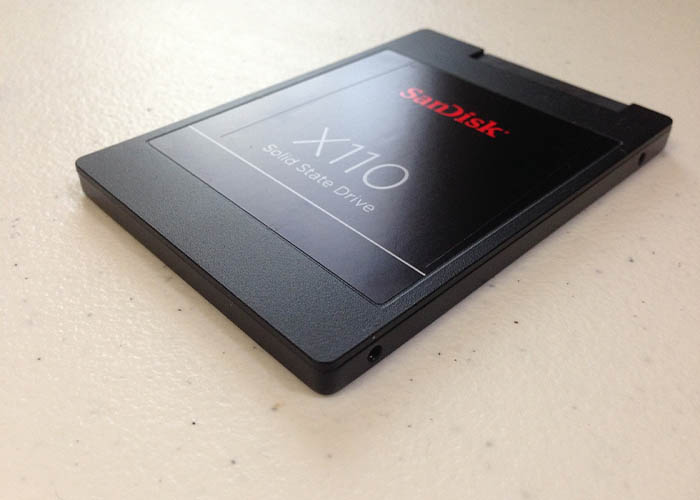Most of us maybe have lost data before, whether it’s due to data corruption, viruses, hard drive failure, or unintentional deletion. On every occasion, we were terrified and realized the importance of data backup.
Data backup and recovery services keep backups of files and restore them in unwanted situations. Hence, you must choose the trusted data recovery service.
You may read the article to learn more about data backup and its importance. I hope you will receive answers to all of your queries.
Table of Contents
What is backup of data?
Backup of data is the process of making copies or archives of data and storing them on a secondary storage media to provide protection against data loss. In the event of a software or hardware failure, backups are used for restoring the original data.
Types of data backup
Over time, backup technology has progressed a lot and has gotten more complex. To make backups better and more dependable, various considerations have been made in the time taken for backup and restorations, storage costs, and network bandwidth. However, these driven advancements have increased process complexity to a great extent.
Methods of backup technology may be divided into three types. There are three types of backup strategies: full, differential, and incremental. Any of the strategies can be used by an organization depending upon its needs.
Full Backup
The Full Backup technique is the simplest of all the three available methods. This method creates a copy of all the available files and folders on a regular basis and stores them in a secondary storage media.
The benefit of a full backup is that it takes less time in recovering data, resulting in a faster restoration time. However, it takes longer to backup files than other forms of backup techniques as in this method, everything is backed up at once.
Other typical difficulties with performing full backups are that they use a lot of storage space, consume a lot of network traffic, and there is always a risk of data theft if backups are not encrypted.
Small businesses prefer to use a full backup technique since they usually have fewer data to handle and also this technique is easier to manage. However, To avoid data theft, backups should be encrypted while employing this technique.
Incremental Backup
The incremental backup employs one full backup at first. After that, the succeeding backups will store only those data that have been modified since the last full backup.
The incremental backup technique has several advantages, including the fact that it takes less space and very little network bandwidth. That allows for a faster backup operation.
However, among all the backup techniques, the incremental backup method takes the longest time to restore backups. Furthermore, if one of the incremental backups is lost or damaged, a complete restoration may not be possible.
The incremental backup technique is optimum for businesses that deal with large amounts of data since incremental backups consume the least space and allow users to create backups as frequently as they want, with only the most recent changes being saved.
Differential Backup
A differential backup stands in the middle of a full backup and an incremental backup. This form of backup consists of a complete backup and successive backups that are done to store the changes made to the files and folders after the first backup.
This form of backup only requires two backup sets for restoration: an initial full backup and the most latest differential backup, which allows for a faster run and a lesser space requirement.
Why data backup is important?
Now, what is the importance of data backup? Well, data backup is necessary to provide security of important data when primary data failure occurs. Primary data failure may occur due to hardware or software failures, natural disasters, human-caused errors, or due to malicious attacks on the computer system.
Whatever is the reason for failure, backed up data can be recovered from secondary storage to where backups were stored, and thus data loss or theft can be prevented.
Whether it’s any confidential papers of a business organization or images of your beloved family, having a backup of data is essential so that in case of a data loss event, this crucial information is not lost and can be restored.
7 Reasons for data backup
For small organizations, huge businesses, and even individuals, data loss may be devastating. The majority of people in today’s modern world use computers, laptops, and mobile devices to search for information, analyze, and store data.
It is important to back up this information on a regular basis for security and protection reasons.
Here are the top 7 reasons why you should always keep backups of your data.
Preventing Data Loss
Data loss can occur due to many reasons including hardware or software failures, natural disasters, human-caused errors, or due to malicious attacks. One of the main reasons for data backup is to save important files and to prevent data loss in the event of system failure.
Audits Reporting
Businesses must save their financial records and accounting data for tax reporting purposes. Tax regulatory commissions are strict about checking on this information and keeping backups of it is important to keep the regular business operations running.
Information Archives
Storing client details in an archive will aid a company’s growth and development. Backing up data simplifies the creation of archives.
Fast Data Recovery
A system can be infected in several ways. If the backups of system data are up-to-date, then simply recovering the data from secondary storage can avert a major incident.
Competitive Benefit
Following a natural disaster, it is vital for businesses to resume operations as quickly as possible. However, companies with better backup data have a competitive edge over their competitors.
No Downtime
If data loss occurs, additional work is needed to restore the data. While working on data recovery, the original business operation remains on hold. The time required for data recovery is a waste of time for a business.
A data backup decreases the amount of time spent to recover data, resulting in much less downtime.
Read More: Best Free Data Recovery Software That Actually Works
Annual Reports
By backing up data, annual reports can be produced and compared for analyzing business operations and thus creating future development goals.
What are the advantages of data backup?
For the protection and security of information, it is important that businesses keep their vital data backed up properly. The main advantages of data backup are pointed out below.
Security
Integrating dependable data backup services can aid in the protection of data from malicious activity. Most data backup systems include encryption to protect backed-up data from theft and breaches.
Management Simplification
Restoring lost data is stressful and time-consuming. Data backups result in management simplicity. It avoids inconsistent and erratic data restoration.
Reliable Reproduction
Backups of data ensure correct data reproduction after it is being restored which makes the operation more reliable and efficient.
Cost Management
A robust data backup and recovery solution can lead to significant cost savings by reducing workforce expenses. Thus Data backup can help in cost reduction.
Workload Reduction
Backing up data manually on a CD or a USB drive is time-consuming and requires additional manpower. But data backup techniques are automated and thus it reduces the workload and also saves time.
No influence on the operation
Regardless of the operating system’s current workflow, a backup solution is always running in the background. Users experience fewer interruptions due to the backup operation, resulting in increased uptime.
How Effective are Data Recovery Services?
The effectiveness of a data recovery service is heavily dependent on the system’s state and the way the data was lost in the first place. But with the advancement of technology, the effectiveness and reliability of data recovery methods have increased to a great extent. But you know only the proven data recovery service provider like Data Recovery Station can be your ultimate choice.
Read: Why Data Recovery is Important? Recover Your Data!
Frequently Asked Questions (FAQs)
How much does data backup cost?
The cost of an online backup service firmly depends on the quality of data backup assistance you may anticipate getting from the service provider. Check out here data recovery price to know the price package.
What is the best way to backup your data?
According to experts, a three-two-one rule for backup is recommended to follow. This implies that the original data is preserved on a computer, a backup is saved on an external storage device such as a hard drive, and a third backup is stored on a cloud backup service.
Final Verdict
To ensure the security and protection of data in the event of data loss or theft, the importance of data backups is inevitable. It is necessary that data backups are performed on a regular basis. And backups are required to be kept in several locations other than the hardware on which the original data is stored.
After you have gone through the article, hope that you have gathered enough knowledge about data backups and their usefulness.
Read More:
Can You Trust Data Recovery Company?
10 Best Data Recovery Software, Comparison, Pros, And Cons







1 thought on “Why is data backup important? 7 Advantages”
wow i am backing up mine today so wonderful